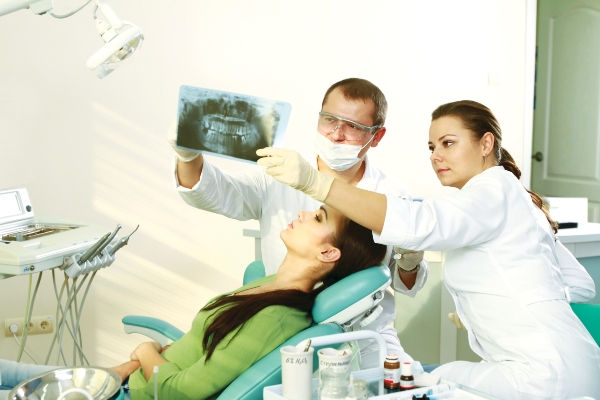 Jaw correction can result from a smile makeover. Improper biting and chewing can cause pain and discomfort. These problems can also cause difficulties in speaking. If you want to know how a smile makeover can improve your jaw function, here are the three ways it can do so.
Jaw correction can result from a smile makeover. Improper biting and chewing can cause pain and discomfort. These problems can also cause difficulties in speaking. If you want to know how a smile makeover can improve your jaw function, here are the three ways it can do so.
1. Traditional braces
This type of smile makeover can handle bite disorders. The metal brackets, wires, and elastics can help pull and push the teeth into their correct positions. Traditional braces do not only straighten a smile. They can also improve facial structure and jaw function. The treatment gives structural balance to the patient’s face.
Poor jaw structure or teeth misalignment often results in difficulty eating and temporomandibular disorders. These can also cause breathing difficulties, sleep apnea, headaches, and difficulty speaking. Traditional braces are a smile makeover option capable of realigning a person’s bite. This can also correct the person’s jaw function. The harmony between the teeth and the jaw relieves the tension and pain in the jaw muscles. Here are some of the issues this smile makeover can treat:
- Spacing or crowding of teeth
This case needs dental extraction. The procedure will allow the remaining teeth to shift into the right spaces. Moving the teeth will be faster. Traditional braces can close the large spaces between teeth and stop the teeth from misaligning.
These orthodontic problems are common. An overbite has the top teeth more forward than the bottom teeth. An underbite has the bottom teeth protruding. These cases are not only aesthetic. Each one also causes structural and functional issues.
This is when the bottom and top dental arches do not meet the right way. They tend to overlap. This is an aesthetic problem. It can cause problems with eating. It can also make it difficult for the person to speak.
2. Dental implants
This permanent smile makeover option can replace missing teeth. The dentist will use titanium rods to serve as dental roots. They will prevent the jaw from losing bone mass by stimulating the bone. The body will then send nutrients to the jawbone for cell repair.
These implants will also prevent the neighboring teeth from shifting toward the empty spaces left from tooth loss. The correct positioning of teeth will maintain the patient’s proper bite. The patient’s jaw function will remain intact. Patients who have been dealing with tooth loss for years will have improved jaw function because of dental implants.
3. Dentures and bridges
Smile makeovers in the form of dentures and fixed bridges can also maintain the empty spaces from tooth loss. The patient’s bite remains the same when these restorations maintain the dental spaces. This stimulates the jawbone. The stimulation results in the strengthening of the jawbone, improving the patient’s jaw function.
A smile makeover can maintain or enhance your jaw function
Choosing the right treatment can improve your smile. This involves either aligning teeth, correcting bite disorders, or replacing missing dentition. Achieving these improvements will enhance your quality of life as well. An appointment with your dentist can determine which smile makeover treatment will fit your dental needs.
Request an appointment or call Frankford Dental Care at 215-302-1746 for an appointment in our Philadelphia office.
Recent Posts
A smile makeover is something to show off and be proud of, as restorative procedures are designed to improve the form and function of the smile. Some people may have repairs done for purely aesthetic purposes and to create a whiter, brighter, and more uniform smile. Others may choose treatments that give them beautiful teeth…
The quality of your smile makeover experience is often determined by the dentist you choose to perform it. Read on to find out how to choose the right dentist. The good news is there are steps you can take to help ensure you choose the dentist that is right for you according to your treatment…
A dental problem can cause a headache or migraine, which might require smile makeover treatments to fix. Various illnesses can cause excruciating headaches, and they are not all limited to the head. There is a link between headaches, migraines, and your teeth in certain circumstances.Headaches can cause nausea, face tingling, dizziness, and sensitivity to sound…


